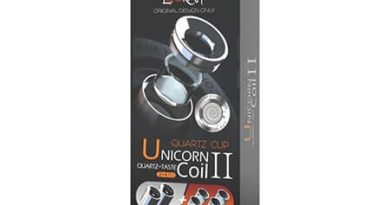Liquid Minerals vs. Traditional Supplements: What’s the Difference?
In the quest for optimal health, the market is flooded with various supplements promising myriad benefits. Among these, liquid minerals and traditional supplements are two popular forms that often leave consumers wondering which to choose. Let’s delve into the differences between liquid minerals and traditional supplements, and explore their respective benefits and potential drawbacks.
What Are Liquid Minerals?
Liquid minerals are dietary supplements that deliver essential minerals in a liquid form. These minerals are often dissolved in water or another liquid medium, making them easy to consume. Common minerals found in these supplements include magnesium, zinc, iron, calcium, and selenium, among others.
What Are Traditional Supplements?
Traditional supplements typically come in pill, capsule, tablet, or powder form. They have been the standard for many years and are widely available. These supplements also contain essential vitamins and minerals but are usually bound in a solid matrix that requires digestion and breakdown in the stomach.
Key Differences
Absorption Rates
One of the most significant differences between liquid minerals and traditional supplements lies in their absorption rates. Liquid minerals are generally absorbed more quickly and efficiently by the body. Because they are already in a dissolved state, they can bypass much of the digestive process, allowing for faster and often more complete absorption. Traditional supplements, on the other hand, need to be broken down by the digestive system, which can slow absorption and sometimes result in less of the nutrient being absorbed.
Ease of Consumption
Liquid minerals can be easier to consume, especially for individuals who have difficulty swallowing pills. They can be taken directly or mixed into beverages, making them a convenient option for children, the elderly, or anyone with swallowing difficulties. Traditional supplements may not be as user-friendly in this regard.
Dosage Precision
Liquid minerals often offer more flexibility in dosing. Because you can measure out the exact amount you need, it’s easier to adjust your intake based on your specific requirements. Traditional supplements, however, come in fixed doses, which may not be ideal for everyone.
Shelf Life and Stability
Traditional supplements generally have a longer shelf life compared to liquid minerals. The stability of minerals in liquid form can be a concern, as they may be more susceptible to degradation over time, particularly if exposed to light and air. This means liquid minerals may need to be stored more carefully to maintain their potency.
Additives and Fillers
Traditional supplements often contain binders, fillers, and other additives to create the pill or capsule form. These ingredients can sometimes cause adverse reactions or sensitivities in some individuals. Liquid minerals typically have fewer additives, potentially making them a purer option.
Cost
Cost can also be a distinguishing factor. Liquid minerals tend to be more expensive than traditional supplements. The manufacturing process for liquid forms is more complex, and the packaging is often more robust to protect the product, contributing to a higher price point.
Benefits of Liquid Minerals
- Faster absorption: Ideal for those needing immediate nutrient uptake.
- Easy consumption: Great for individuals with difficulty swallowing pills.
- Adjustable dosage: Flexibility to tailor the amount to individual needs.
- Fewer additives: Reduced risk of allergic reactions or sensitivities.
Benefits of Traditional Supplements
- Longer shelf life: More stable over time.
- Wider availability: Easier to find in various stores and online.
- Cost-effective: Generally less expensive.
- Convenience: Simple to carry and use on the go.
Potential Drawbacks
Liquid Minerals
- Shorter shelf life: More prone to degradation.
- Higher cost: Can be more expensive than traditional forms.
- Taste: Some may find the taste unappealing.
Traditional Supplements
- Slower absorption: Requires digestion, which can delay nutrient uptake.
- Difficulty swallowing: Not suitable for everyone.
- Additives: Potential for unwanted fillers and binders.
Which Should You Choose?
The choice between liquid minerals and traditional supplements depends on individual needs and preferences. If you have trouble swallowing pills, need rapid nutrient absorption, or want to avoid additives, liquid minerals may be the better option. Conversely, if you prefer a cost-effective, convenient, and long-lasting supplement, traditional forms might suit you best.
Ultimately, the decision should be guided by your specific health needs, lifestyle, and advice from healthcare professionals. Regardless of the form, ensuring you get the right balance of essential nutrients is key to maintaining good health.
Conclusion
Both liquid minerals and traditional supplements have their unique advantages and potential drawbacks. Understanding these differences can help you make an informed choice tailored to your health goals. Always consult with a healthcare provider to determine the best approach for your dietary needs and overall well-being.




